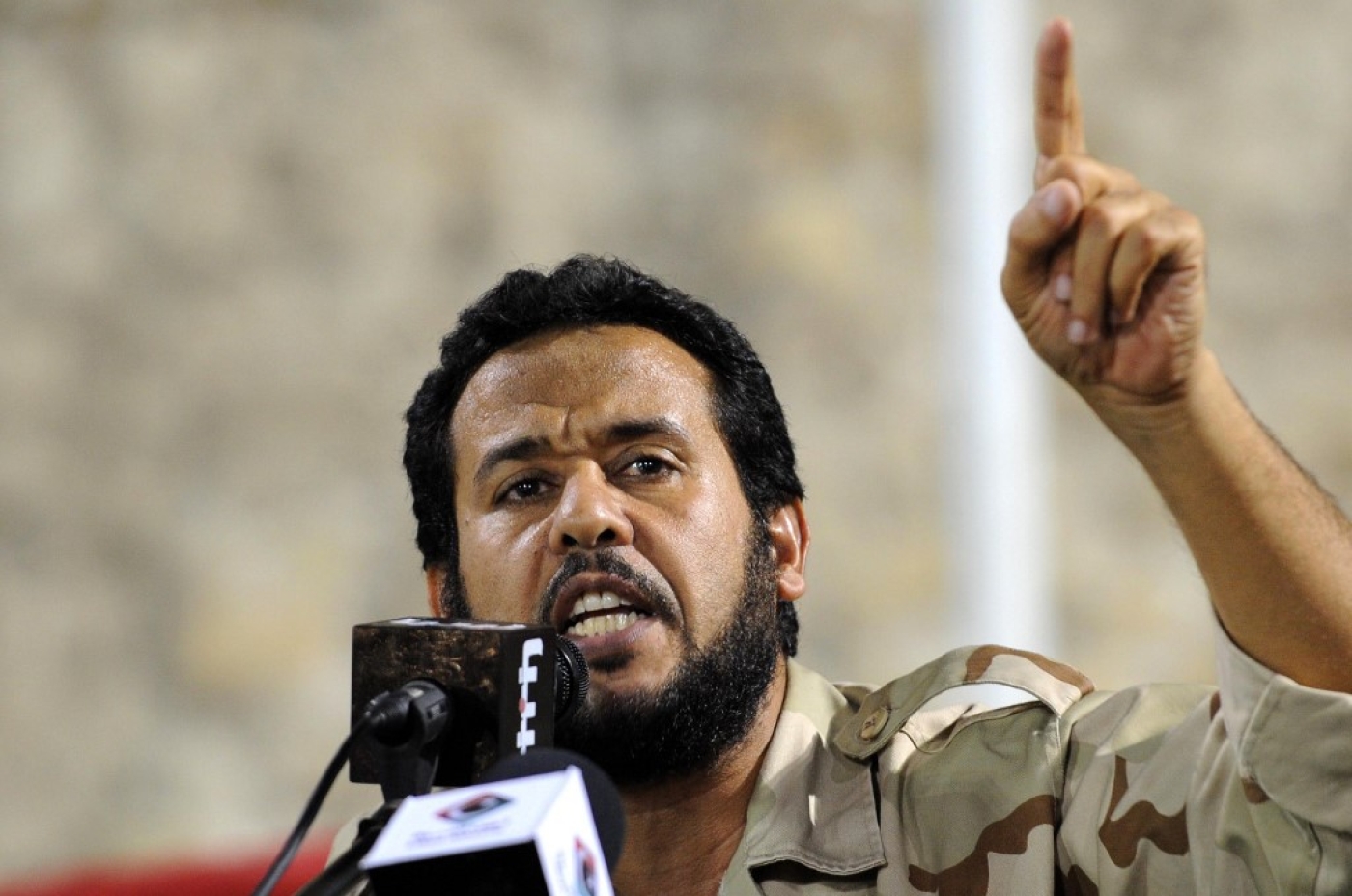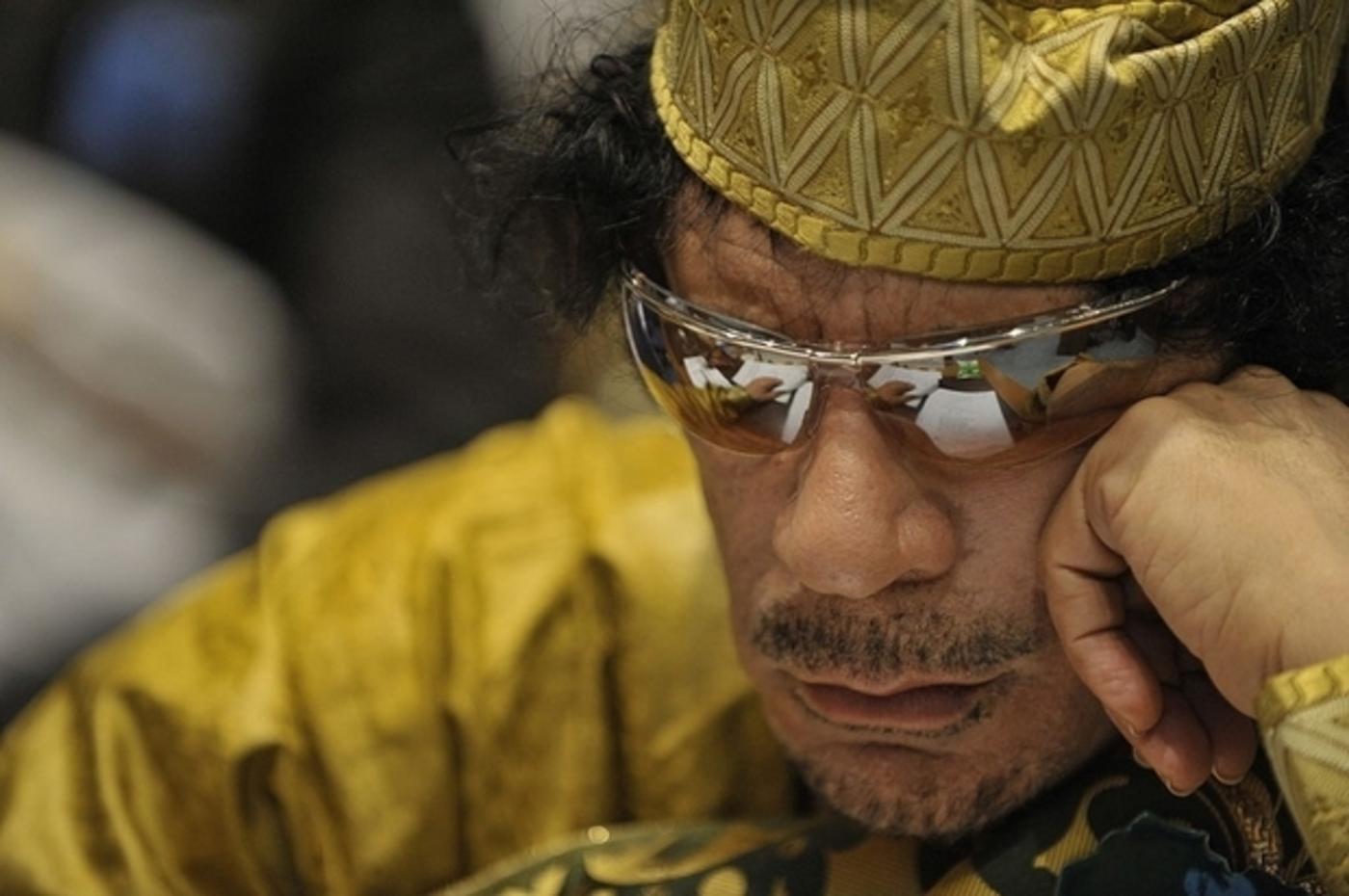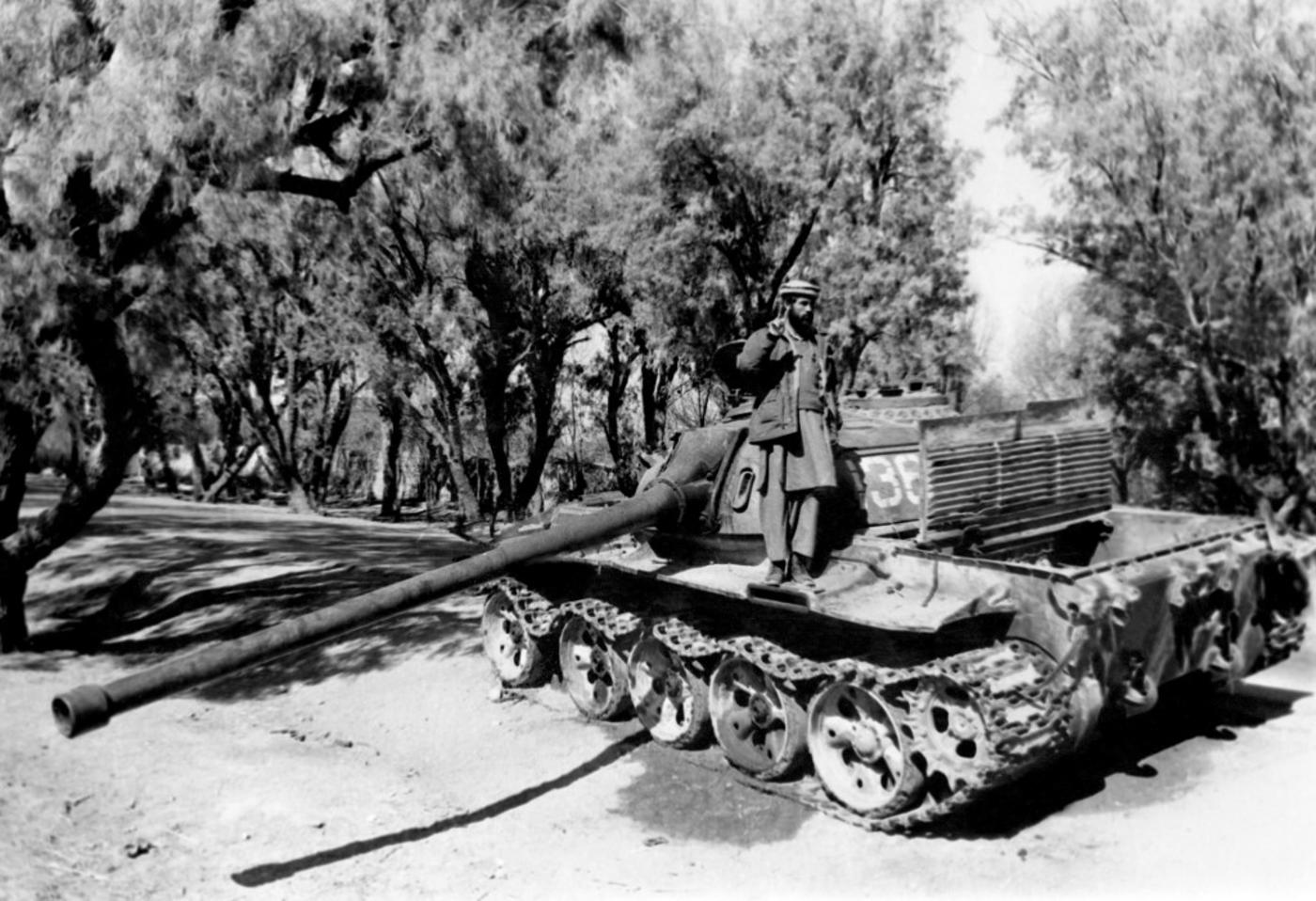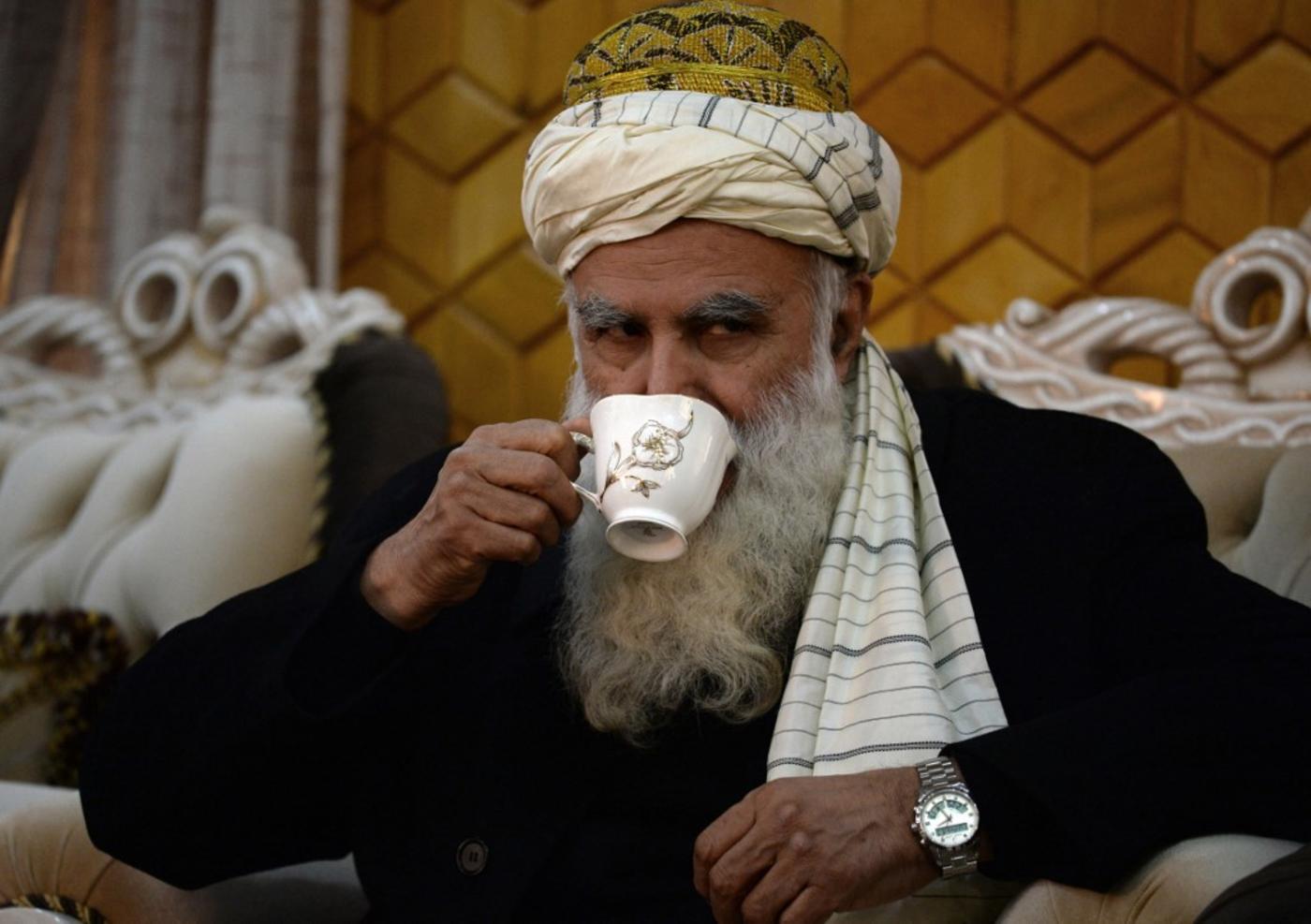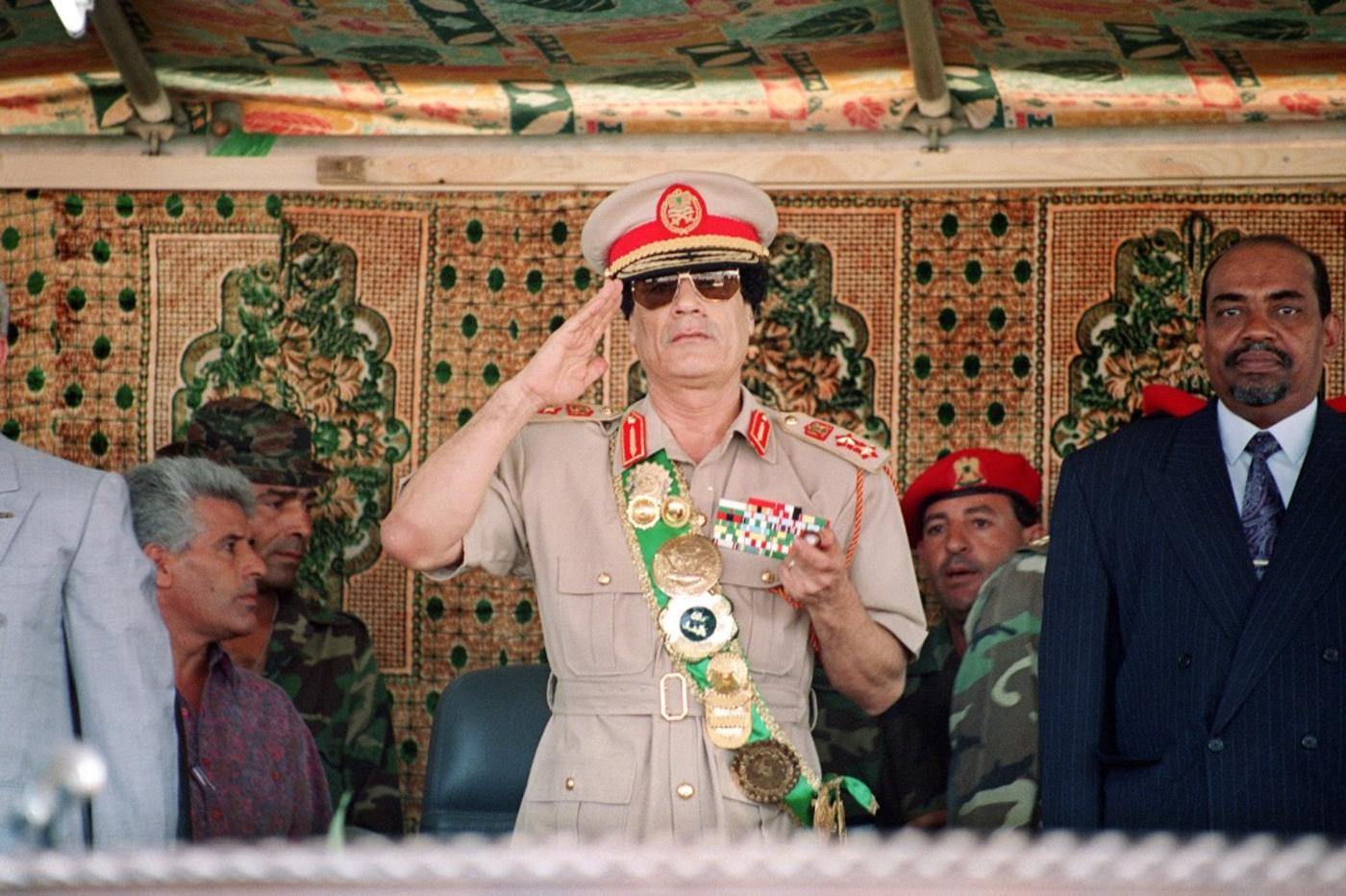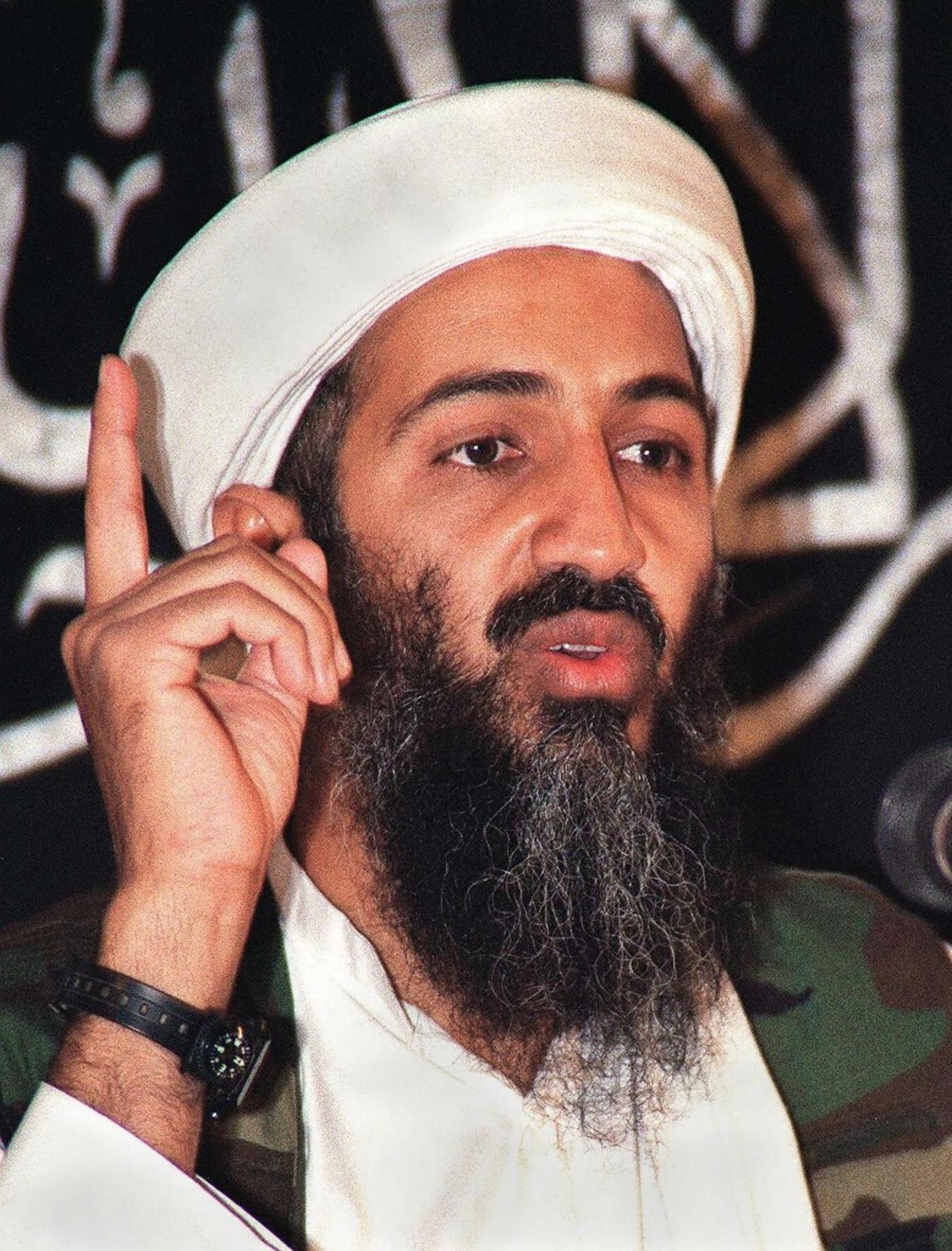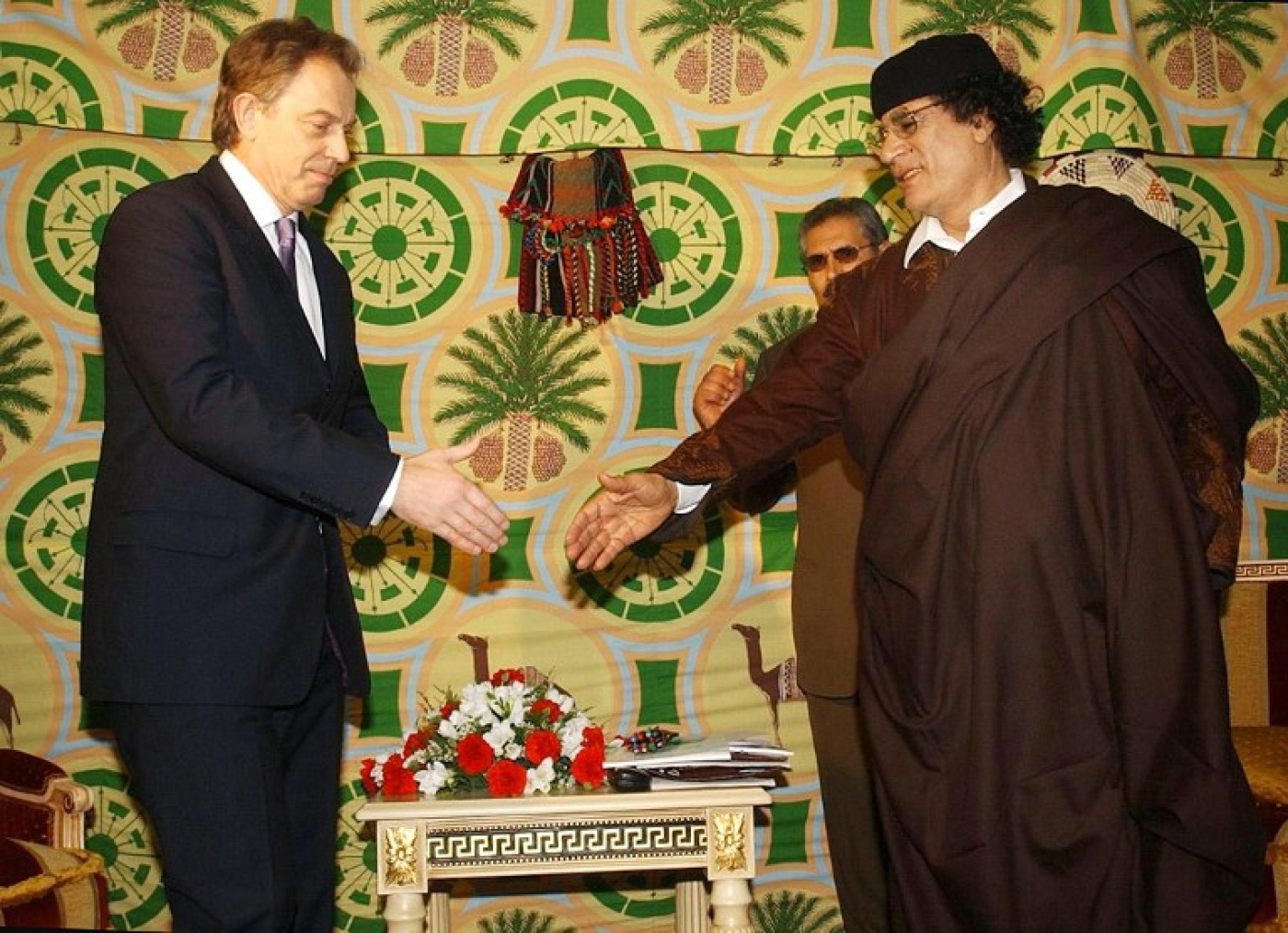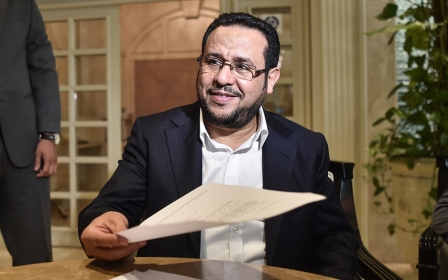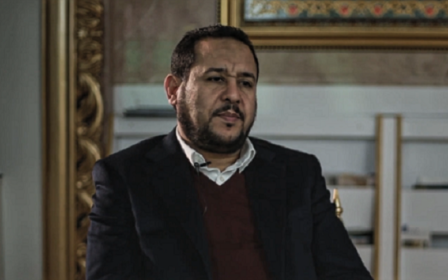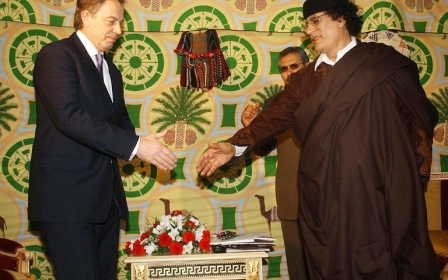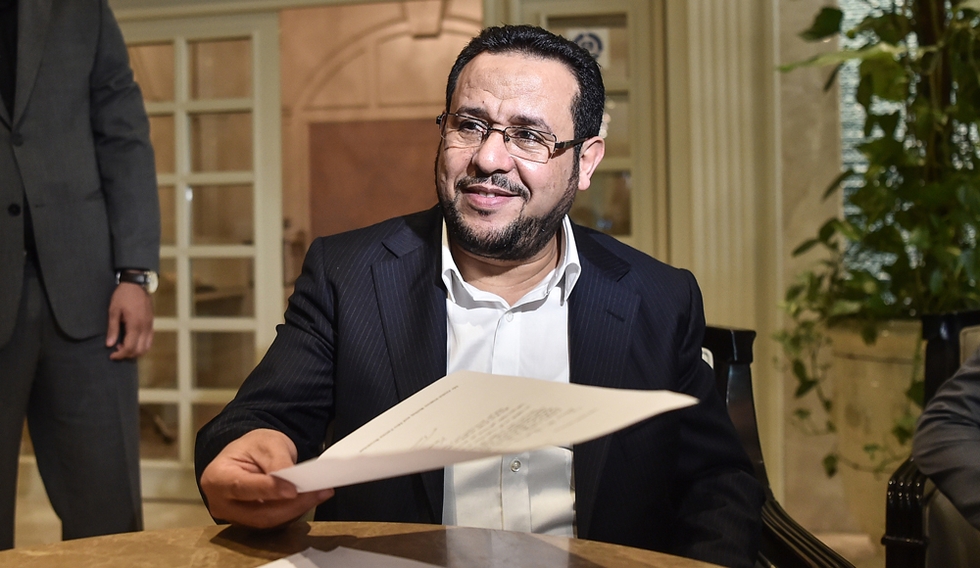
Abdul Hakim Belhaj: Why I rejected bin Laden’s invitation to join al-Qaeda
“We need to do something!” the young Belhaj had said, brandishing the handgun.
“What?” his university friend said puzzled.
“I don’t know,” he replied.
“What about when the bullets run out?”
“I don’t know, but we have to do something.”
New MEE newsletter: Jerusalem Dispatch
Sign up to get the latest insights and analysis on Israel-Palestine, alongside Turkey Unpacked and other MEE newsletters
Abdul Hakim Belhaj smiles at the memory of his youthful impetuousness.
Sitting in his office in Istanbul, where a framed apology from the British government hangs on the wall, the former leader of the Libyan Islamic Fighting Group (LIFG) cuts a very different figure to the young student brandishing his father’s pistol that day in 1986.
In his suit and designer spectacles, you’d never guess that he spent seven years in Muammar Gaddafi’s notorious Abu Salim prison and once ran an organisation designated as a terrorist group by the US. Nor that he emerged from prison to become a senior rebel commander during the uprising that toppled the Libyan leader in 2011.
Eight years on, and with Libya still in a state of civil war, Belhaj has reinvented himself as a businessman and a politician, dividing his time between Turkey and his homeland as a representative of the democratic Watan party and sitting on panels put on by think tanks. To his enemies, he’s Qatar’s man, a backroom operator in Libya’s fractious politics.
And yet, for all that has passed, he remembers vividly the televised show trial of a group of men who had attacked a Gaddafi acolyte in Benghazi as the moment when he committed himself to armed struggle.
Before their execution, the men on trial had confessed to sending fighters to Afghanistan. Outraged, Belhaj took his father’s gun and went to university urging a group of six students, with whom he had formed a secret cell opposed to Gaddafi’s rule, to do “something”, even if that “something” was still intangible.
Tony Blair? That’s a name I don’t want to hear
But a suit cannot completely cover up the past. The apology on the wall in both English and Arabic relates to the settling last year of Belhaj’s long-running legal fight against the British government over MI6’s collusion in the CIA rendition operation in which he and his wife, Fatima Boudchar, were abducted from Thailand and delivered to Tripoli in 2004.
The pain is still there. Mention Tony Blair, the former British prime minister whose "deal in the desert" with Gaddafi was sealed in a tent outside the Libyan capital a few days after the operation, and his face changes as if a profanity has been uttered.
“That’s a name,” he says, “I don’t want to hear.”
But Belhaj is willing to talk about much else. In particular, he is keen to discuss his time with the LIFG as a fighter in Afghanistan during the 1990s, when his associates included Osama bin Laden and other members of the nascent al-Qaeda network.
It is an association that has tarred him ever since. The late Republican senator John McCain for instance, received considerable flak for associating with the rebel commander.
Between 2004 and 2015 the LIFG was designated as a terrorist organisation by the US State Department. In the UK, the LIFG remains a proscribed terrorist group.
The United Nations added the LIFG to a sanctions list targeting groups and individuals linked to al-Qaeda, the Taliban and bin Laden in October 2001, while Interpol links the group to bombings in Casablanca in 2003, and Madrid in 2004.
Belhaj has rejected all these accusations and said that the only person the group ever targeted was Gaddafi. And he is keen to set the record straight.
Perhaps this is the politician in him wanting to rehabilitate his past. But the account he gives tallies with the accounts of other LIFG members that I came across while researching and co-authoring a memoir of Abdullah Anas, the Algerian fighter who was a key figure among the Arab mujahideen who joined the war against the Soviet occupation of Afghanistan in the 1980s.
Secret cell
The story of how Belhaj became involved in a secret cell committed to the cause of an armed uprising against Gaddafi begins with him as an 18-year-old with ambitions to study medicine.
The Libyan state however decided that he should study aviation at a military college. Angered by this, Belhaj, who came from a conservative Sufi family, decided to boycott his studies, shutting himself away in a Sufi lodge to memorise the Quran.
'Gaddafi wanted men to worship him'
Following an attack on an army barracks by anti-Gaddafi militants in May 1984 however, Belhaj found himself caught up in a crackdown on opposition both real and imagined, and in which even Sufis usually seen as quietist or allies of the government were arrested.
“Gaddafi,” he says, “wanted men to worship him.”
The authorities dragged him out of the lodge, arrested and tortured him for four days. On his release he emerged an ardent opponent of the regime.
Enrolling at Tripoli University to study engineering, Belhaj recalls bodies hanging from a gallows erected in a square on the campus as students hurried between lectures.
And while activism was not tolerated, he was increasingly drawn to the political ideas of Said Hawwa, the Syrian Muslim Brotherhood ideologue.
“I found myself forced to oppose him [Gaddafi]” he says, “I used to dream of destroying the regime but I didn’t know how.”
The "how" came in the shape of Mohammed Saeed, a fourth year engineering student doing retakes in his first year class.
In a chance meeting, Belhaj had asked him where the prayer room was, and Saeed immediately spotted a kindred spirit. When Saeed revealed that he belonged to a secret cell devoted to overthrowing Gaddafi, Belhaj didn’t need any asking to sign up.
At the time, according to Belhaj, this secret organisation did not have a vision for how it was to accomplish this goal, nor did its members even know who its leadership was. But they believed that Gaddafi was the apex of an inverted pyramid; if he fell the whole edifice would collapse.
At first, the six-man cell focused on the Islamisation of the campus. “We would slip in leaflets about hijab on female student’s books and see what the impact might be,” he says.
Political discussions revolved around Libya’s socio-economic condition, but gradually they broadened to include other issues affecting the Muslim world. Belhaj sat with his friends in their homes listening to tapes he had obtained of “Arab Afghans” like Abdullah Azzam and others talking about their jihad in Afghanistan.
But it was the televised show trial in 1986, and the defendants’ bold admission that they had sent men to Afghanistan that he credits with prompting a shift in the group’s thinking and in his own political direction.
Libya to Afghanistan
In 1988 Belhaj travelled to Afghanistan, with two other members of the group. The organisation had by now adopted a “jihadi” approach, as Belhaj puts it, alluding to Quranic injunctions that they were committed to rectifying an evil deed through action.
The Afghan delegation’s objective was to seek jurisprudential rulings from clerics as to the permissibility to overthrow Gaddafi through armed insurrection.
Belhaj flew to Saudi Arabia to perform Umrah during Ramadan. He obtained his visa in Jeddah where he and other Libyans, under the auspices of the World Muslim League and the blessing of the Saudi kingdom, prepared to travel to Afghanistan.
Whilst there his group approached prominent Saudi scholars to ask whether Gaddafi was still a Muslim, which they believed would give them more of a justification to oust him.
“Those we asked… all believed him to be outside the fold of Islam,” he says.
Once in Pakistan, Belhaj travelled from Islamabad to Rawalpindi to Peshawar where he stayed in the house of the Afghan leader, Gulbuddin Hekmatyar, for two days before moving on to the al-Ansar guesthouse where most Arab fighters stayed on their way to Afghanistan.
Initially, the guest house was run jointly by Abdullah Azzam’s Arab Services Bureau and Osama bin Laden, but later when tensions emerged al-Ansar was run by the latter.
“It was huge and full of scholars,” he recalls. “There were lectures by Abu Hajer al-Iraqi, Abu Ibrahim, Sheikh Musa al-Qarni, and others visited.”
The former two were close to Abdullah Azzam and later gravitated to bin Laden’s camp. Abu Hajer al-Iraqi or Mamdouh Mahmud Salim, became bin Laden’s top aide and was linked to the US embassy bombings in East Africa in 1998.
Qarni, a leading Saudi scholar who supported the fight against the Soviets, is currently serving a 30-year prison sentence in Saudi Arabia.
He was dubbed bin Laden’s judge despite also being close to Ahmed Shah Massoud, the Afghan military commander of the Northern Alliance who al-Qaeda assassinated two days before the 9/11 attacks in 2001.
From Peshawar, Belhaj’s group moved onto a training camp. “There we were no more than one hundred Libyans. We did our basic training within a month, arms training, we had done national service so it wasn’t difficult.”
Belhaj and his countrymen were then sent to fight on the frontline in Nangarhar in Jalalabad and stayed in a guest house called Markaz Libya, Libyan centre, where they met some of their countrymen who had arrived a year earlier.
Meetings with bin Laden
After several months, he met some Arabs who suggested that he go to bin Laden’s al-Ma’sada or lion’s den compound in Jaji for further training.
He recalls fleeting meetings with bin Laden whose reputation by then preceded him. As Belhaj admits, “people were impressed by the fact that he had sacrificed his wealth for the sake of the hereafter”.
After leaving Jaji, Belhaj and his men returned to another camp where they undertook a four-month course in explosives and guerrilla warfare.
For Belhaj, the dilemma of whether to focus on Libya or Afghanistan was resolved by the patronage of Abdul Rasul Sayyaf, the controversial Afghan leader of the Ittehad-al-Islami (Islamic Union), one of the main factions among the anti-Soviet fighters.
Sayyaf was a graduate of al-Azhar University, fluent in Persian, Urdu and Arabic, and with an ability to mobilise funds from the Arab world. His vision of the struggle seemed to look beyond the mountains of Afghanistan.
With this in mind, Sayyaf supported groups from Somalia, Eritrea, Indonesia, the Philippines and Libya. He encouraged Belhaj and his group to establish a Libyan organisation known as Saraya al-Mujahideen in Afghanistan, which became the prototype for the LIFG, and even funded a Libyan guesthouse in Babi.
Unlike many of the other groups, the Libyans were careful not to get tangled up with the tensions that were slowly emerging among the Afghan Arabs.
The Arab Services Bureau had in the early days been the main hub for Arab fighters, but increasingly bin Laden, by now in control of the al-Ansar guesthouse, was drawing new recruits into his own ranks.
As the Soviets were departing in 1989, Belhaj was approached by one of bin Laden’s lieutenants, Abu Ubaidah al-Banshiri, who urged him to join a programme called al-Qaeda al-Ansar in Khost. Belhaj refused; their vision was unclear.
Meanwhile, Belhaj’s own group was growing in size. He attributes this to an amnesty of Libyan prisoners in 1988, and a softening of the security apparatus in Libya combined with a grassroots religious revival.
‘There was a feeling of total freedom in Afghanistan, no one could control you’
More Libyans were able to travel on the Umrah pilgrimage where they encountered and were influenced by Saudi sheikhs. Fears of a renewed security crackdown saw a new exodus to Afghanistan, even as the Soviet withdrawal was gathering pace.
Belhaj recalls: “There was a feeling of total freedom in Afghanistan, no one could control you. It was a place where Libyans from all over the country gathered. You could use it effectively to organise your forces and that is what we did.”
By this stage, the LIFG was organised under the leadership of an executive council of 13 men, with military, media, security, Sharia and finance councils.
Belhaj, now in his late twenties, was responsible for the military wing and organised training camps in Sada and Khost. New Libyan recruits would undergo basic training, then be sent to the front to be tested.
If they passed, they would be taken to the LIFG’s Salman al-Farisi camp in Gardez, Nangarhar, where they would be trained in the group’s doctrine and receive specialist training in explosives and asymmetric warfare.
When the Soviet-backed Afghan government in Kabul was toppled in 1992, Belhaj entered the city. He had been injured several times by then and had fighting units operating in Gardez, Logar and Tarkham.
But the taste of victory was fleeting. Belhaj met Ahmed Shah Massoud at the defence ministry who told him in no unclear terms that a civil war was brewing and that his group should not take part.
Plotting to kill Gaddafi
Unlike many Arab Afghans, Belhaj took his advice and moved the group back to Pakistan where they turned their attention wholly to Libya, re-establishing contacts within the country. The situation looked promising; Western sanctions imposed on Libya in 1992 were starting to bite.
That year Belhaj returned to Libya on a forged passport. The LIFG at this point had about 300 men in the country which they split into three zones: East, West and South. Belhaj’s area was Eastern Libya, including the cities of Ajdabiya, Tobruk, Kufra and Benghazi.
Belhaj found the east easy to operate in due to its distance from Tripoli, and the independent nature of its people. The security services too appeared more lenient. For six months, Belhaj operated incognito, using a number of aliases and moving constantly.
The group’s objective was to spread its ideas, agitate against the government, get hold of weapons and, if possible, assassinate Gaddafi.
“The only person we would kill was Gaddafi, we never thought about taking out his ministers or targeting their families,” he says. “We tried our best to kill Gaddafi but God’s destiny is such.”
Belhaj recalls a series of attempts on Gaddafi’s life that were thwarted either when bombs failed to detonate, plots were disrupted or on one occasion, when the bomber blew himself up.
“This bomber was zealous,” he says. “There was no Islamic jurisprudence behind it, just anger; perhaps his kids would be better off if he killed Gaddafi, that was the logic. But he blew himself up too early, may God forgive him.”
On another occasion, the LIFG managed to plant 20kg of explosives along a dusty road that Gaddafi was expected to travel along.
“But two hours before his arrival they bulldozed the road and paved it… I myself built three bombs… ready to take him out in Derna but the men involved were arrested in August 1994.”
By 1995, weary and demoralised, Belhaj and other members of the LIFG left Libya for Sudan, where bin Laden had also found refuge following the Islamist coup that installed Omar al-Bashir as president in 1989.
While bin Laden, by now estranged from the Saudi royal family, had become involved in business dealings with the Sudanese government, Belhaj says that the Libyan exiles chose to keep their distance from the authorities in Khartoum.
Many of the al-Qaeda members that Belhaj met there were unhappy at having gone from fighting in Afghanistan to animal husbandry and agriculture. However, the LIFG’s position was not good either.
“The Libyan regime was strong,” says Belhaj, “the people were not receptive, the group was weak and the country didn’t want to deal with a civil war.” After all, Algeria next door had descended into a brutal conflict.
At the same time, Gaddafi was putting increasing pressure on the Sudanese government to expel the LIFG from the country.
This followed a failed assassination attempt on Gaddafi’s life in 1996 and an incident in which some LIFG members conducted a daring rescue of an injured comrade from a Benghazi hospital wearing commando gear. Bowing to that pressure, the Sudanese asked the group to leave.
But where too? “Some” says Belhaj, “had gone to scope out Algeria where they had made contact with the GIA but many did not return. We realised they were Takfiris and we didn’t want anything to do with them.”
The GIA was the Armed Islamic Group of Algeria, an Islamist militant organisation which fought a civil war with the Algerian government in the 1990s in which more than 80,000 people died and both sides were accused of mass killings and widespread human rights abuses, according to human rights groups.
In the end the group relocated to Istanbul and stayed there till 1999. It seemed to be the best place for the LIFG’s strategic operations.
In 1998 the LIFG shura council, now older and wiser, took stock of its situation and adopted a different strategic outlook. Belhaj suggested that the group cease hostilities inside Libya and that it drop the word "Fighting" from its name and call itself the Islamic movement of Libya.
Bin Laden’s invitation
It was during this process of evolution that Belhaj received an invitation to visit bin Laden in Kandahar. By this time, Belhaj was also involved in attempts to reconcile the various Afghan factions embroiled in the civil war.
Bin Laden, however, was moving in the opposite direction to the Libyan commander. He wanted to recruit Belhaj to his self-styled World Islamic Front, which in February 1998, had issued a fatwa signed by bin Laden and four other militant leaders declaring a “Jihad against Jews and Christians”.
In doing so, and in issuing a previous fatwa in 1996 declaring war on the United States, bin Laden had gone behind the back of Mullah Omar, the leader of the Taliban and by then de facto ruler of Afghanistan who had offered the al-Qaeda leader hospitality after he too had been forced to leave Sudan.
For Belhaj, the declaration bordered on the megalomaniacal. It was an alarming development for all Islamic organisations, militant or otherwise; all organisations would be tarnished including the LIFG.
The invitation raised other dilemmas too. Bin Laden was fast gaining notoriety: the US embassy bombings in Kenya and Tanzania in August 1998 killed more than 200 people and put him on the FBI’s most wanted list. His associates were also seen to be causing trouble in Bosnia, Chechnya and other places.
But his legacy and reputation in Afghanistan, where his activities could be framed as part of an anti-colonial struggle, still carried weight.
And so Belhaj accepted the invitation. He recalls sitting in bin Laden’s home in Kandahar, being pressed to join his organisation. But whilst Belhaj was willing to hear him out he did not hesitate in tearing into bin Laden’s vision.
Belhaj recalls some of the questions he threw at his host.
“Okay we understood that there used to be al-Qaeda al-Ansar in the past but now this front was altogether different… what was the Islamic evidence? What’s this new thing about fighting the Jews and the Christians?… Why didn’t we declare our enmity towards Japanese, Chinese, Thais as well? Aren’t they polytheists?
“What benefit was there to be had by attracting doom on a poor Afghanistan or for that matter bombing innocent East Africans in the US embassy? Has the White House fallen? If a war happens where are you going?… Why are you calling Muslims to emigrate to Afghanistan and then blowing them up there?… How do you face God?”
Belhaj recounts that bin Laden couldn’t offer coherent answers. It was as if he expected a few missiles from the Americans and that would end the matter.
The meeting ended, according to Belhaj, with Abu Hafs al-Mauritani or Mahfouz Ould al-Walid, al-Qaeda’s only scholar, shouting “Allahu Akbar! I have found someone who supports me!”
Al-Walid resigned from the organisation in protest when the 9/11 plot was hatched. By then, Belhaj says, he had also made a total break with bin Laden.
But even though he was finished with the al-Qaeda leader, the whirlwind that followed 9/11 meant that the United States’ “war on terror” was not finished with him. That meeting in Kandahar would haunt him for the next 10 years.
Nor did it help that some LIFG members like Atiyah Abd al-Rahman and associates like Abu Yahya al-Libi did choose to join al-Qaeda’s ranks.
For outsiders looking in, it was very difficult to distinguish between the LIFG and al-Qaeda. And so, in the post 9/11 world in which the security climate had been ratcheted up, Belhaj was caught in its dragnet.
His capture was indicative of Libya coming in from the cold. The thawing of the Anglo-Libyan relationship in the wake of 9/11 meant that there was remarkable cooperation between British spy chief Mark Allen and his Libyan counterpart Mousa Koussa culminating in Blair’s visit to Libya in March 2004.
As Blair shook hands with Gaddafi, Belhaj already languished in Abu Salim enduring torture, spending the next seven years inside its dark belly.
Eventually in 2009, Belhaj and the LIFG leadership, penned a recantation of Jihadism entitled, “Revisionist Studies of the Concepts of Jihad, Verification, and Judgment of People”.
That document was seen by some as an attempt to get out of jail. Whilst it certainly helped in his release, and Belhaj says he still stands by his recantation, it did not stop him from taking up arms against his old foe.
When the Libyan uprising began in 2011 Belhaj and other LIFG members lead the charge against Gaddafi’s forces, ending in the triumphant entry into Tripoli.
But the question now, for the likes of Belhaj and other commanders in similar positions is this: with General Khalifa Haftar’s Libyan National Army installed on the outskirts of the Libyan capital and battling the country’s internationally recognised government, what should they do?
Should Belhaj discard his suit and don military fatigues again? Or will he continue to operate as a leader in exile? Perhaps it is time for Gaddafi’s nemesis to do some deals in the desert of his own.
This article is available in French on Middle East Eye French edition.
Middle East Eye delivers independent and unrivalled coverage and analysis of the Middle East, North Africa and beyond. To learn more about republishing this content and the associated fees, please fill out this form. More about MEE can be found here.


